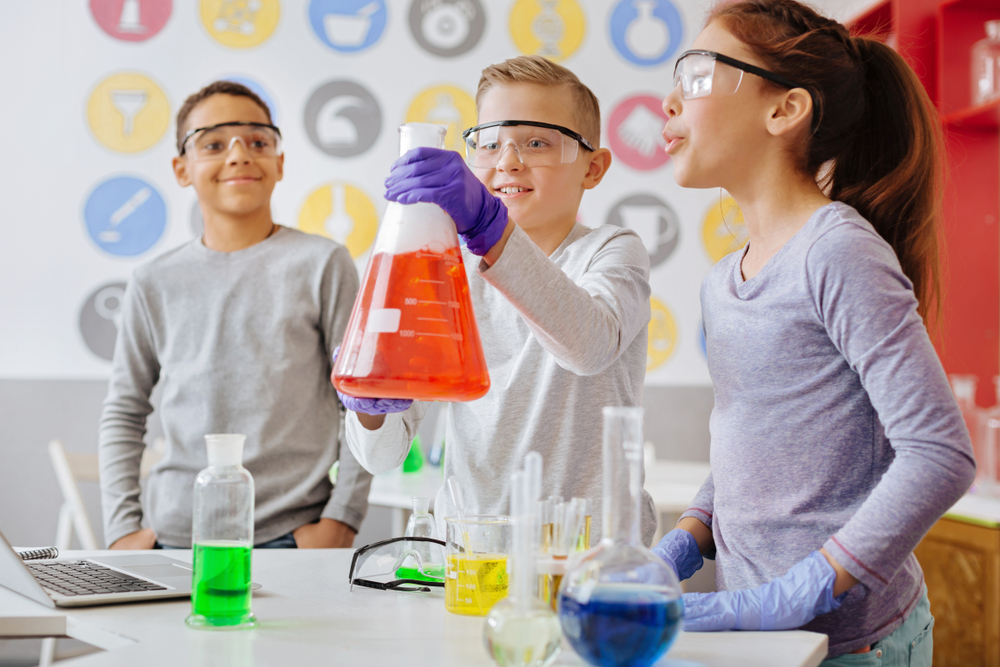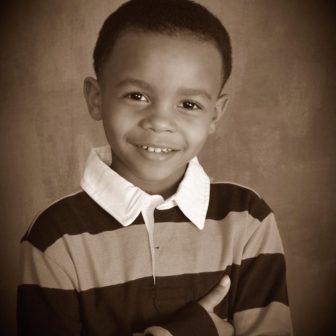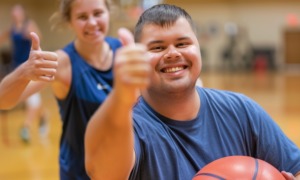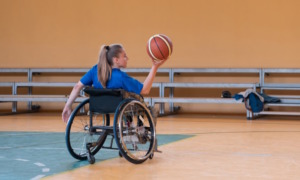
YAKOBCHUK VIACHESLAV/Shutterstock
.
Amid all the worrying and doubt about the coronavirus, young people with disabilities are finding ways to stay positive. Staying at home does limit activities for everyone, but I have found that people with disabilities, both youth and adults, are finding creative ways to spend their time. Whether it is an indoor Easter egg hunt or learning to cook a meal, this time at home has inspired people to find joy in the small things.

Deandra Mouzon
My colleague Phillip Modesitt, 30 years old, has cerebral palsy and diabetes. He is one of the most positive and upbeat people I know. Phillip lives in Marietta, Ga., next to the Kennesaw State University football field. In normal circumstances you can catch him there every fall cheering on the KSU team. With this pandemic, however, he is forced to stay in the house, especially since he is at higher risk.

Phillip Modesitt
Since being on “lockdown” he has had to switch gears and work from home instead of from the office. Although it was a shaky start, he is now up to speed on things like videoconferencing and group emails and says that he enjoys working from home.
“I enjoy the flexibility. I can take a break whenever I need to,” he said. Outside of work he likes to watch his favorite TV shows and listen to music.
Like Phillip, parents of children with disabilities are learning to switch gears, with some focusing on bringing fun and learning into the home. A video news report by ABC News shows one young lady’s room filled with board games and science experiments. Although these parents do admit they are concerned that their children will regress from not being in a school environment, they do feel there is a light at the end of the tunnel.
My cousin Daniel Oglesby is one of the many parents who is home-schooling a child with special needs. His son Jalen Oglesby, 7, has disfluency and articulation deficits. At school he works with a speech and language pathologist, but since the pandemic he has been making videos and audio snippets for the pathologist to review.

Jalen Oglesby
Daniel, who works with children in special education, is a board certified behavior analyst. He has insight into how a child’s environment affects their ability to learn. One benefit of Jalen being at home is that he is getting one-on-one attention, he said.
Since the quarantine started, Daniel has noticed an improvement in Jalen’s behavior. Not only is he performing better, but he is also learning new life skills. He now knows how to clean up and do laundry, as well as some basics about cooking.
His father’s advice to parents? “Create schedules and routines. Include frequent breaks if needed and utilize positive reinforcement. Get kids moving around and active outside. Don’t feel pressured to finish everything all at once; do what you can when you can.”
Working and going to school from home is definitely an adjustment for everyone. As we all face new challenges, remember to take time out for yourself. Allow your children to do the same. At work, we have a group mindfulness session every Thursday where we meditate together for 10 minutes. This has become a very healthy and helpful activity for us as a group and I encourage you to try it.
At a time like this when we are balancing work, school, exercise and fun from home, self-care is of utmost importance. Young people with disabilities are very resilient but they do need time and space to explore and evolve as people. Give them the opportunity to learn things outside of schoolwork and motivate them to ask questions. You may be surprised at how they grow.
If you would like to contribute to this column and share your story about life during quarantine with a disabled youth, email me at Deandra@csjournalism.org.
Deandra Mouzon is a Georgia-based journalist who received a B.A. in journalism from CUNY’s York College. Currently she is working on a publication about youth with disabilities.





























